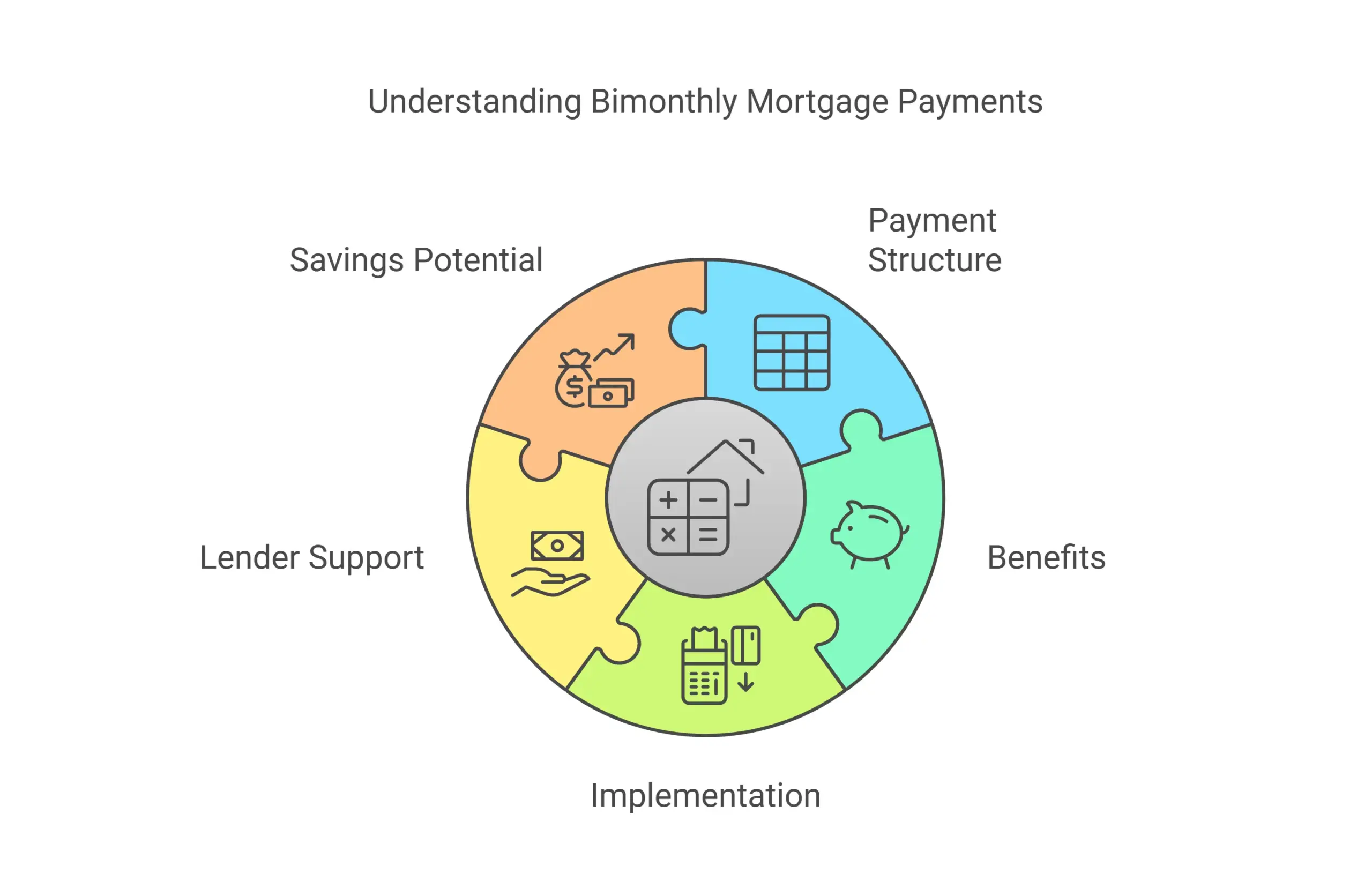Bimonthly mortgage payments are gaining traction as a strategy to save money on interest and pay off home loans faster. But how do they work, and are they the best fit for your financial goals? Let’s dive in to uncover the details.
What Are Bimonthly Mortgage Payments?
Bimonthly mortgage payments split your monthly mortgage into two equal parts, which you pay every two weeks. This results in 26 half-payments annually, equivalent to 13 full monthly payments per year, instead of the standard 12.
This extra payment reduces your mortgage balance faster, saving you thousands in interest over time.
Example:
- Monthly mortgage: $1,200
- Biweekly payment: $600
- Annual total: $15,600 (compared to $14,400 with monthly payments).
This simple adjustment could cut years off your mortgage and lead to significant savings.
How to Pay Your Mortgage Bimonthly
- Contact Your Lender
Check if your lender offers a biweekly payment plan. Some lenders may not support it, but alternatives are available. - Set Up Automatic Payments
Many lenders allow automatic biweekly withdrawals from your account. If not, schedule recurring payments through your bank. - Consider Third-Party Services
If your lender doesn’t support biweekly payments, companies like Equity Accelerator or PayMap can manage this for you (for a fee). - Confirm Principal Allocation
Ensure the extra payments go directly toward your loan’s principal. Misallocated payments could delay your financial goals.
Benefits of Bimonthly Mortgage Payments
- Pay Off Your Loan Faster
With an extra payment annually, a 30-year mortgage could be paid off in 25-26 years. - Save on Interest
By reducing your loan balance sooner, you save tens of thousands of dollars over the loan’s lifetime.
Example: A $300,000 loan at 5% interest could save over $30,000 with biweekly payments. - Simplify Budgeting
If you’re paid biweekly, splitting your mortgage aligns with your income schedule, making payments more manageable. - Build Equity Faster
Accelerating your payments means you build home equity sooner, offering financial flexibility for future borrowing or refinancing.
Are Biweekly and Bimonthly Payments the Same?
No, they differ:
- Biweekly Payments: Pay every two weeks (26 payments/year).
- Bimonthly Payments: Pay twice a month (24 payments/year).
While both can accelerate loan payoff, biweekly payments generate more savings due to the extra annual payment.
Do All Lenders Allow Biweekly Payments?
Not all lenders support this payment method. Major institutions like Guild Mortgage and PNC Bank may offer it, but policies vary. If unavailable:
- Manual Payments: Schedule your own extra payments.
- Third-Party Services: Use a facilitator like Payoff Accelerator.
Before starting, ensure your lender processes partial payments correctly and applies extra amounts toward the principal.
How Much Can You Save?
Your savings depend on factors like loan size, interest rate, and term.
Example Calculation:
- Loan Amount: $250,000
- Interest Rate: 4%
- Term: 30 years
Without biweekly payments:
- Total Interest Paid: $179,674
With biweekly payments:
- Total Interest Paid: $148,958
- Savings: $30,716
Use a bimonthly mortgage calculator to explore your specific savings potential.
Why Use Bimonthly Payments?
Bimonthly payments are ideal for homeowners who want:
- Faster loan payoff.
- Interest savings.
- Easier budgeting.
However, weigh potential fees and confirm your lender’s policies. For many, the benefits outweigh the drawbacks, making it a smart financial move.
Common Questions About Bimonthly Payments
1. Can I Make Biweekly Payments If My Lender Doesn’t Allow It?
Yes, you can manually schedule extra payments through your bank or hire a third-party service to manage them.
2. Do Biweekly Payments Always Save Money?
Yes, provided extra payments go directly toward the principal. Double-check lender policies to avoid fees.
3. Does Paying Biweekly Improve My Credit?
It won’t directly improve your score but reduces debt faster, positively affecting your debt-to-income ratio.
4. What Are the Downsides?
Fees from third-party services or lender restrictions could offset savings. Always confirm costs before committing.
Take Action Today!
Curious about your potential savings? Use our Mobile Home Manufactured Mortgage Calculator to see how much faster you can achieve mortgage freedom.
Resources: Consumer Financial Protection Bureau (CFPB) – Mortgage Basics

